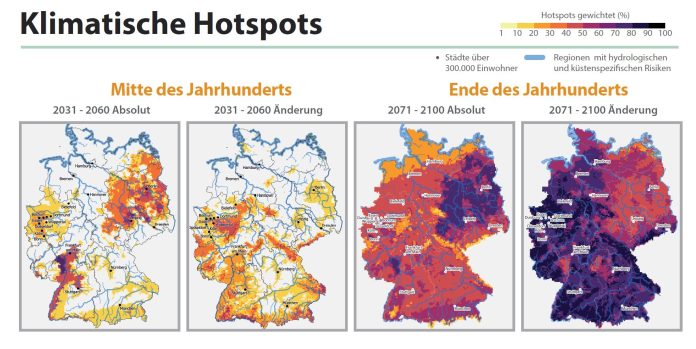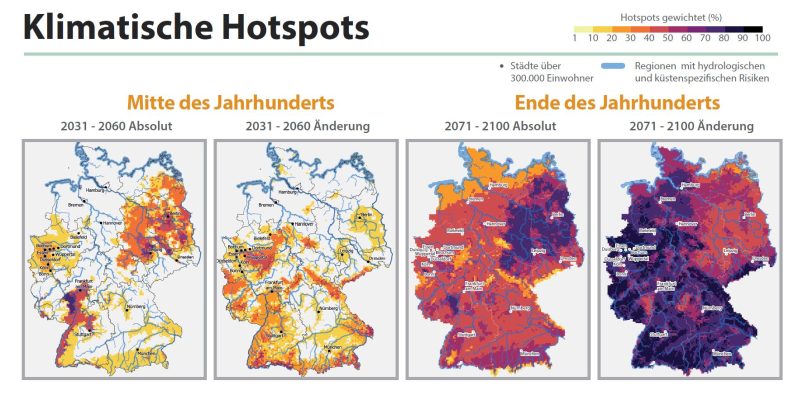Discover the effects of climate change on ecosystems in Germany.
The Effects of Climate Change on Biodiversity in Germany
Impact on Ecosystems
Climate change in Germany has had a significant impact on biodiversity and ecosystems. Rising temperatures and extreme weather events such as floods and heatwaves have led to habitat loss and fragmentation. This has resulted in the decline of certain plant and animal species, as well as disruptions in the natural balance of ecosystems. In addition, changes in precipitation patterns have affected the availability of water, further impacting the survival of various species.
Loss of Species Diversity
The effects of climate change in Germany have also led to a loss of species diversity. Many plant and animal species are struggling to adapt to the rapidly changing environmental conditions, leading to population declines and in some cases, local extinctions. This loss of biodiversity not only affects the natural beauty of Germany’s landscapes, but also has implications for the functioning of ecosystems and the services they provide, such as pollination and pest control.
Challenges for Conservation Efforts
The changing climate presents significant challenges for conservation efforts in Germany. Conservationists and environmental organizations are faced with the task of protecting and restoring habitats in the face of increasing pressures from climate change. They must also consider the potential for invasive species to thrive in the new environmental conditions. Additionally, the need to mitigate the effects of climate change on biodiversity requires innovative and adaptive strategies that take into account the interconnected nature of ecosystems and the complex interactions between species.
Climate Change and Ecosystem Services in Germany
Germany is facing severe economic losses due to climate change, as highlighted by a study conducted by the Ecological Economic Research Institute of Germany. The study, carried out while Berlin is developing a climate change adaptation strategy, reveals the significant financial impact of extreme weather events such as storms and floods. However, the study does not account for non-financial losses such as health deterioration, heat-related deaths, and biodiversity loss. Furthermore, according to recent statistics released by the German reinsurance company Munich Re, natural disasters including storms, floods, and other extreme weather events have caused a staggering $270 billion in damages worldwide in 2022. These figures, although lower than the previous year, demonstrate a consistent increase in such losses over the past few years.
Efforts to Address Climate Change in Germany
In response to the escalating impact of climate change, Germany has set a target to increase the proportion of renewable energy sources in its total electricity consumption from 44% in 2022 to at least 80% by 2030. However, a new study published in February by the German Energy and Industry Association (BDEW) and consulting firm Ernst and Young (EY) has revealed that the transition to renewable energy in the country is progressing unevenly. The implementation of renewable energy technologies is deemed to be progressing too slowly, posing a challenge to achieving the set targets.
Lists:
1. The study conducted by the Ecological Economic Research Institute of Germany highlights the significant financial impact of extreme weather events such as storms and floods on the country’s economy.
2. The German reinsurance company Munich Re’s statistics reveal that natural disasters caused $270 billion in damages worldwide in 2022, indicating a consistent increase in such losses over the past few years.
3. Germany aims to increase the proportion of renewable energy sources in its total electricity consumption from 44% in 2022 to at least 80% by 2030, as part of its efforts to address climate change. However, a study by the German Energy and Industry Association and Ernst and Young has shown that the transition to renewable energy is progressing unevenly, with the implementation of renewable energy technologies being too slow.
Mitigation and Adaptation Strategies for Climate Change in German Ecosystems
Impact of Climate Change on German Ecosystems
Germany has been facing severe economic losses due to climate change, as highlighted by a study conducted by the Institute for Ecological Economic Research in Berlin. The study, while focusing on the economic impacts, failed to account for non-financial losses such as health deterioration, fatalities due to heatwaves, floods, and biodiversity loss. Furthermore, Munich Re, a reinsurance company, reported that natural disasters, including storms and floods, caused a staggering $270 billion in damages worldwide in 2022. The German Ministry for Economic Affairs and Climate Action also revealed that extreme weather events have cost Germany at least 145 billion euros from 2000 to 2021, with the devastating floods in 2021 in Rhineland-Palatinate and North Rhine-Westphalia being a significant contributor.
Transition to Renewable Energy
In response to the escalating climate crisis, Germany has set a target to increase the share of renewable energy sources in its total electricity consumption from 44% in 2022 to at least 80% by 2030. However, a study released by the German Energy and Water Industries Association (BDEW) and Ernst and Young (EY) in February highlighted the uneven progress in the country’s energy transition. The deployment of renewable energy technologies is deemed to be progressing too slowly, posing a significant challenge to achieving the ambitious renewable energy targets. This indicates the need for more effective and efficient strategies to accelerate the transition to renewable energy sources in Germany.
In conclusion, climate change has significant impacts on the ecosystems in Germany. From altering biodiversity to affecting water resources and agriculture, it is crucial for the country to implement sustainable measures to mitigate these effects and protect its natural environment.





